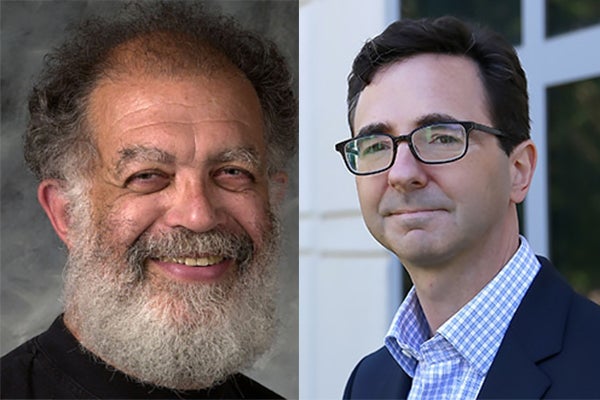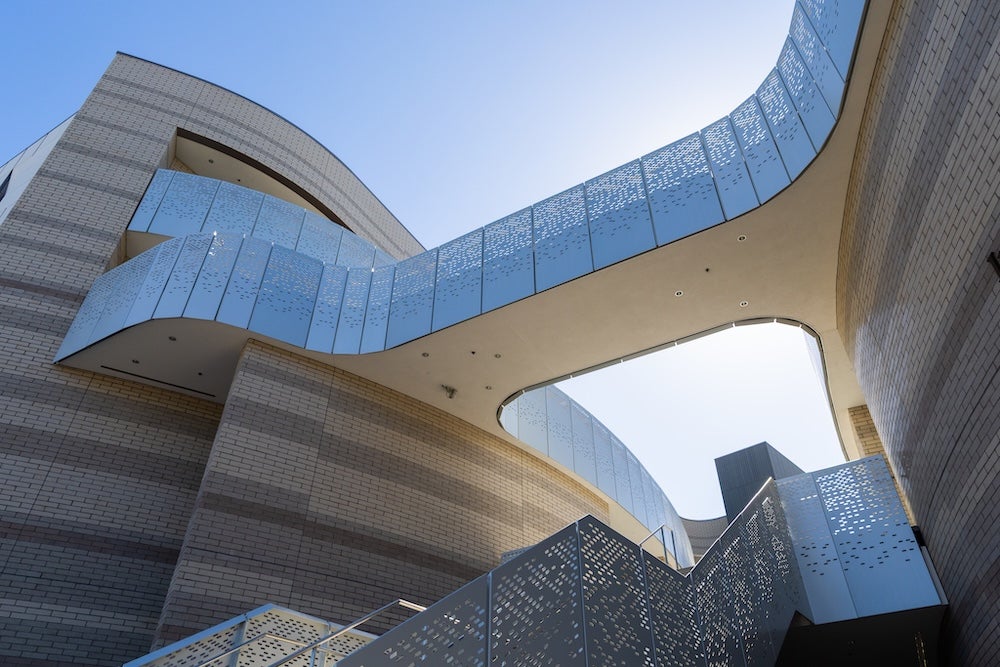
Advancing Science and Its Applications
Two UC Santa Barbara faculty members have been elected 2020 Fellows of the American Association for the Advancement of Science (AAAS), the world’s largest general scientific society. Michael Chabinyc, a professor in the Department of Materials, and Armand Kuris, a professor in the Department of Ecology, Evolution, and Marine Biology, are among 489 researchers from around the world selected for their work to advance science or its applications.
Chabinyc is recognized for his “distinguished contributions to the field of polymer science, particularly for elucidating the relationship of the structure and electronic properties of organic semiconductors to device properties.”
The association honored Kuris for his “important investigations of the ecological role of infectious agents in ecosystems, for practical applications including control of schistosomiasis in Africa and mentoring diverse students.”
“I greatly appreciate the recognition by AAAS, which has members spanning all areas of science,” said Chabinyc, who also is a fellow of the National Academy of Inventors, the American Physical Society, and the Materials Research Society. “AAAS is a particularly special organization because of its important efforts promoting science to the public.”
Chabinyc studies materials for flexible electronics, with a particular focus on thin-film electronic materials. Organic semiconductors can be dissolved and printed as an ink, allowing for the manufacturing of displays, like those that wrap over the edges of smartphones or enable curved television screens and lightweight solar cells. Chabinyc’s group examines how ordered structures form in semiconducting polymers and how it impacts their electrical performance in various applications.
“Our group continues its efforts in a broad range of materials that impact our daily lives. Some of our current interests include super-soft bottlebrush polymers for sensors and polymers that combine ionic and electrical conduction,” explained Chabinyc, who is an inventor on 47 patents in the areas of flexible electronics, bioanalytical devices and electronic materials.
Kuris shared his colleague’s enthusiasm for the AAAS distinction. “I’m honored, thrilled, so pleased to be recognized,” he said.
Throughout his career, Kuris has endeavored to bring parasitology and the infectious process into mainstream ecological theory and practice. His group investigates the factors that lead to the complex lifecycles that parasitic organisms have evolved, and the insights that can be gleaned from a better understanding of parasite-host relationships, both in terms of human health and ecology.
Kuris considers himself “an accidental parasitologist,” who came to the field by chance. What’s kept him there are the complex problems the topic has to offer. “I’ve always been drawn to challenges that do not have an easy approach through simple models,” he said. “Considering parasites in ecological investigations brings in complex life cycles with several hosts interacting with complex transitions.”
His work has had many spin-offs, most notably related to human schistosomaisis, a tropical disease infecting over 200 million people per year, causing debilitating chronic illness and considerable mortality. Other important applications of his work include the impact of parasites on fisheries and the development of biological control for marine pests.
Among his many honors, Kuris has served as the president of the American Society of Parasitologists and received the Ben Gurion Award from Israel’s Ben Gurion University of the Negev, an award also presented to double Nobel laureate Linus Pauling.
However, of all that he has contributed to his field, Kuris feels most proud of his lifelong effort to advance the careers of students from disadvantaged and immigrant backgrounds. “This stems from my own life trajectory as a first-generation American,” he said.
AAAS will formally announce 2020’s class of Fellows in the association’s journal, Science. A virtual Fellows Forum — an induction ceremony for the new fellows — will be held February 13, 2021.



